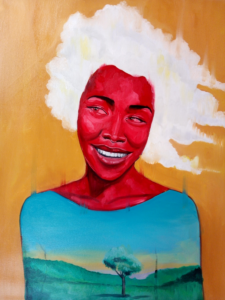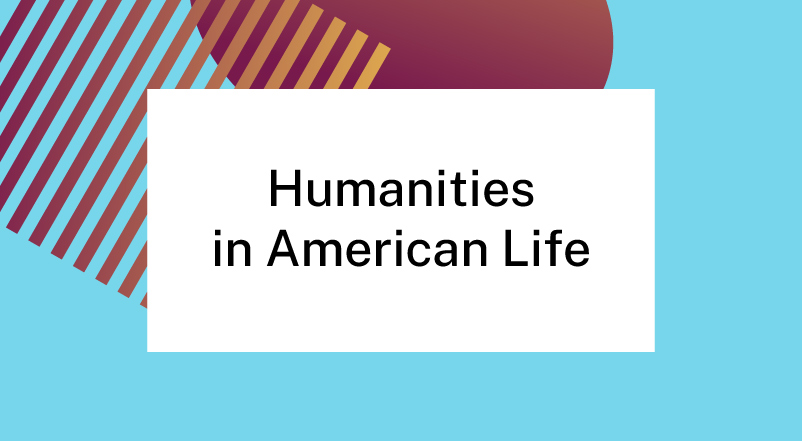Celebrate Black History Month Throughout the Year with a Council Near You
by Sydney Boyd, project manager, Humanities in American Life
Our country celebrates Black history this month, but Black history is an ever-present bedrock of who we are as a country. Where is that history? Everywhere! But I only had to look to any of the many humanities councils to learn what it is, how it is recorded, and whose stories it tells. With so many virtual programs going on this year, that meant with a good internet connection I had access to a treasure trove.
 I started my Black history “month” with humanities councils across the US states and territories in October 2020, when I logged on with Humanities North Dakota to watch “Brave Conversations on the Complexities of Race and Racism,” an online event featuring former Minnesota Supreme Court Justice Alan C. Page. Page grew up in the 1950s and remembers, vividly, the moment when a light went on for him and he realized that if we ever hope to “get at this deep and troubling issue of race, we’re going to have to look deep inside of ourselves first.”
I started my Black history “month” with humanities councils across the US states and territories in October 2020, when I logged on with Humanities North Dakota to watch “Brave Conversations on the Complexities of Race and Racism,” an online event featuring former Minnesota Supreme Court Justice Alan C. Page. Page grew up in the 1950s and remembers, vividly, the moment when a light went on for him and he realized that if we ever hope to “get at this deep and troubling issue of race, we’re going to have to look deep inside of ourselves first.”
In November, I learned about the relationship between the severe desert environment of Southern Nevada and the unfailing courage of African Americans who moved there by taking a virtual tour of Nevada Humanities’ exhibition “Resiliency: A Blooming Diaspora.” As I gazed at quilts with plumb twigs telling stories sewn together by artist Erica Vital-Lazare or became entranced by the sidelong smile of LaRon Emcee’s “Cloud Girl,” Nevada Humanities Program Manager Bobbie Ann Howell explained that I was looking at pieces by artists who are thriving in harsh environments and making their voices heard.
I was reminded that learning about race starts early when I caught up on Colorado Humanities’ series “Changing the Legacy of Race & Ethnicity: Conversations for One America” by tuning into a recorded, virtual conversation that centered on how to talk about race with children in December. As I listened to conversations I wished I’d had—and still should be having—Dr. Rosemarie Allen encouraged those of us tuning in to learn alongside our children to expand our everyday realities: “You cannot expand children’s if you don’t expand your own.”
And here I am in February, still learning, still immersed in Black history. What is that history? Bookended by contemporary poetry, “Why it Matters: Black Alabamians and the Vote: Operation Suffrage in Post-War Alabama,” an Alabama Humanities Alliance event, recalled the overt voter suppression driving the Boswell Amendment, passed in 1946 but declared unconstitutional by 1949 because of grassroots efforts. How is that history recorded? Everett Fly built archives of African American architectural accomplishments from nothing—a casualty of academia’s history of overwhelmingly white canonical record-keeping. Fly continues to build those archives, as Humanities Texas outlines in an article.
I’m also looking ahead to many programs humanities councils offer this month—and all year long—in celebration and commemoration of Black history. Find your humanities council here to see what’s coming up, and I look forward to learning along with you there.
 This post is part of “Humanities in American Life,” an initiative to increase awareness of the importance and use of the humanities in everyday American life.
This post is part of “Humanities in American Life,” an initiative to increase awareness of the importance and use of the humanities in everyday American life.


